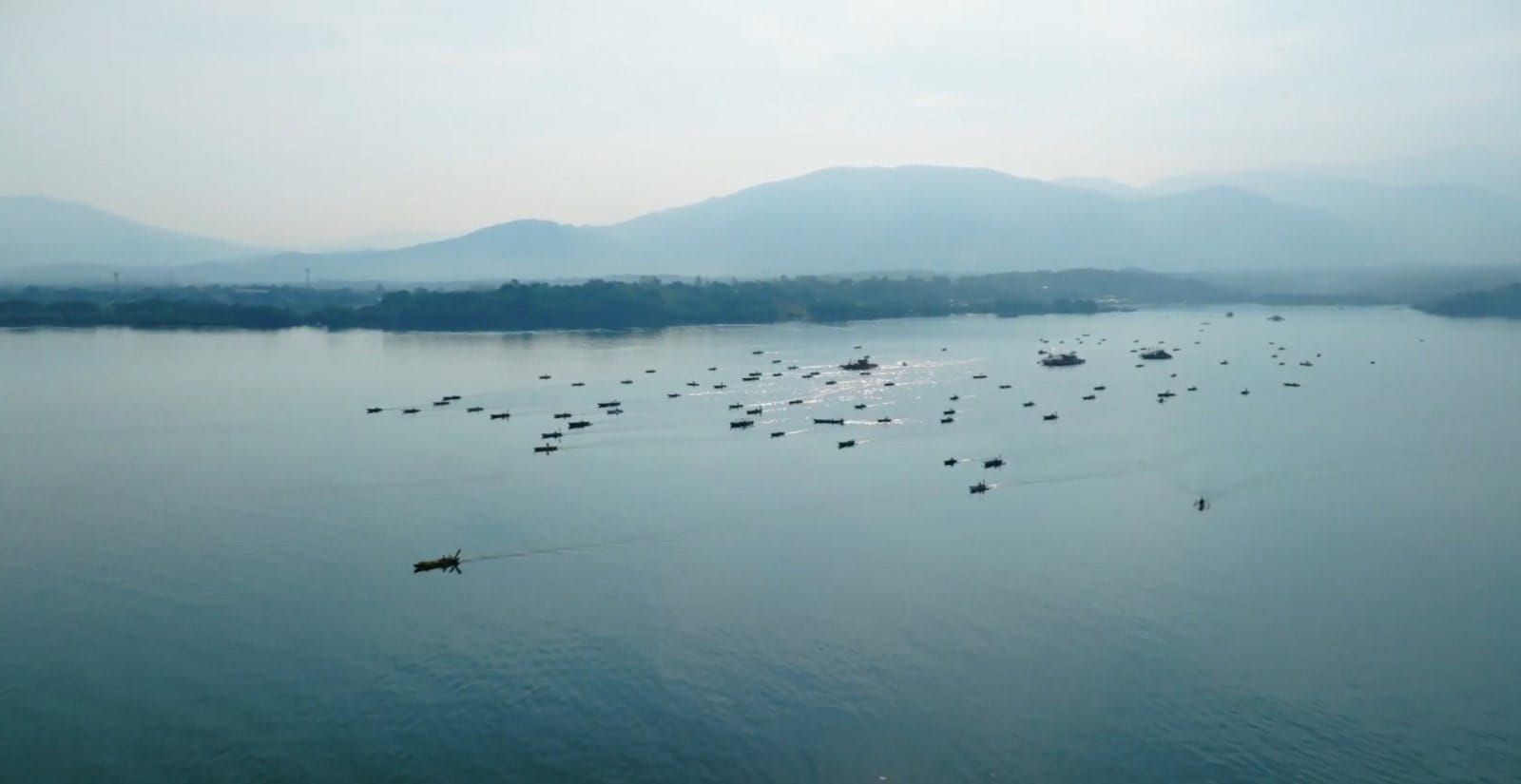Philippines urges neighbors to ignore China's new trespass rule

The national government called on its neighbors in the Southeast Asia on Monday, May 20, to ignore China’s new maritime rule which allows its coast guard to arrest without trial any foreigners who “trespass” into the waters it claims in the South China Sea.
National Security Council (NSC) spokesperson Asst. Director General Jonathan Malaya described such regulation by China as “illegal” as it violates the rights of other claimant-countries in the disputed waters.
“The Philippines will continue to stay and fish in these waters and we call on all maritime states – particularly our neighbors like Vietnam, Malaysia, and Indonesia – to ignore these illegal regulations, and stay in the waters to the extent that international law allows,” he said in a livestreamed press conference of the National Task Force for West Philippine Sea (NTF-WPS).
“By doing so, we register our strong objections to the illegal regulations which clearly infringes on the rights of other states,” he added.
According to reports, the China Coast Guard (CCG) released Order No. 3 authorizing the detention from 30 to 60 days of foreign nationals trespassing into the waters under Beijing's jurisdiction, including those overlapping with the Philippines' exclusive economic zone (EEZ), without trial. It will take effect in June, reports added.
Malaya said this regulation runs contrary to international law, the United Nations Convention on the Law of the Sea (UNCLOS), and the United Nations (UN) charter.
“Wala pong karapatan ang Tsina na mang-aresto o magdetain ng sinuman sa West Philippine Sea without trial. Itong mga deklarasyon na ito ay hindi pwedeng i-apply sa exclusive economic zone ng Pilipinas kasama ng Vietnam, Malaysia, Indonesia o Brunei (China has no right to arrest or detain anyone in the West Philippine Sea without trial. This declaration cannot be applied in the exclusive economic zone of the Philippines, including Vietnam, Malaysia, Indonesia or Brunei),” he stated.
“Ito po ay bahagi ng kanilang scare tactics para ma-intimidate at ma-coerce tayo. It is provocative at hindi po tayo magpapa-intimidate sa kanila(This is part of their scare tactics to intimidate and coerce us. It is provocative and we will not be intimidated by them),” he added.
Meanwhile, Philippine Coast Guard spokesperson for West Philippine Sea Commo. Jay Tarriela bared a special report on China’s maritime activities which allegedly resulted to severe environmental damage in the WPS.
He said it has been observed that Chinese fishermen, who are suspected of being maritime militia members, have been transporting large quantities of giant clams harvested in Bajo de Masinloc (Scarborough or Panatag Shoal) since 2016.
Giant clams, according to the PCG spokesman, are declared protected species under the Convention on International Trade in Endangered Species of Wild Fauna and Fora (CITES), an international agreement between governments to ensure that international trade in specimens of wild animals and plants does not threaten the survival of the species.
In 2018, Tarriela said that suspected Chinese maritime militia were also documented sun-drying multiple pufferfish that were caught in the vicinity waters of Bajo de Masinloc “without due monitoring, recording, and regulation from Philippine authorities.” The PCG also monitored Chinese boats harvesting stingray and “samong” or topshells from the shoal in 2019.
In the same year, Tarriela said live sea turtles were sighted in captivity by Chinese fishermen in the northern part of Bajo de Masinloc.
The findings of the PCG have also had similarities to the observations reflected in the 2016 arbitral ruling which invalidated China’s dash-line claims in the South China Sea, as Malaya pointed out that it tackled the “severe harm” caused by the Asian superpower’s reclamation activities to the coral reef environment and failure to protect fragile ecosystems and habitat of depleted, threatened, or endangered species.
China previously denied getting involved in any activity that caused the degradation of marine environment in the South China Sea.
But Malaya dared China to open Bajo de Masinloc to international scrutiny, and allow third-party observers to check on the condition of the shoal.
“They are preventing us from going inside the lagoon so in order for the world to find out if China indeed has fulfilled its obligations under international law, let us open Bajo de Masinloc to international scrutiny,” Malaya said.
“We can ask third-party environmental groups or even the United Nations to do a fact-finding mission to determine the environmental situation in Bajo de Masinloc,” he added.